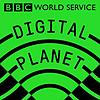
Digital Planet
BBC World Service
Categories: Technology
Add to My List
Listen to the last episode:
Previous episodes
-
396 - Tech LifeFri, 05 May 2023
-
392 - Digital Planet says goodbyeTue, 28 Mar 2023
-
391 - 3D printed food – what’s cooking?Tue, 21 Mar 2023
-
390 - Jimmy Wales on bots and blockagesTue, 14 Mar 2023
-
389 - Digital identity: Where are we now?Tue, 07 Mar 2023
-
388 - Ukraine’s drone spotting appTue, 28 Feb 2023
-
387 - Data in disaster zonesTue, 21 Feb 2023
-
386 - Internet shutdowns around the worldTue, 14 Feb 2023
-
385 - What’s the future of bots on Twitter?Tue, 07 Feb 2023
-
384 - A smart glove to save babiesTue, 31 Jan 2023
-
383 - What happens when the Bitcoin miners leave?Tue, 24 Jan 2023
-
382 - Self-driving cars could be a massive source of global carbon emissionsTue, 17 Jan 2023
-
381 - Getting online in Ukraine’s blackoutsTue, 10 Jan 2023
-
380 - Agritech Special EditionTue, 03 Jan 2023
-
379 - The Tech of 2022Tue, 27 Dec 2022
-
378 - Eight million SIMs blocked in GhanaTue, 20 Dec 2022
-
377 - Shopee in Thailand – is it safe?Tue, 13 Dec 2022
-
376 - Predicting cyclones with mobilesTue, 06 Dec 2022
-
375 - Robots that can assemble almost anything.Thu, 01 Dec 2022
-
374 - Twitter – what next?Tue, 22 Nov 2022
-
373 - The Open Internet for AfricaTue, 15 Nov 2022
-
372 - Controlling protesters in Iran via phonesTue, 08 Nov 2022
-
371 - The Twitter takeoverTue, 01 Nov 2022
-
370 - Chip exports and US-China relationsTue, 25 Oct 2022
-
369 - 5bn mobile phones to become waste in 2022Tue, 18 Oct 2022
-
368 - Internet under attack in UkraineTue, 11 Oct 2022
-
367 - Pandemic pushes women onlineTue, 04 Oct 2022
-
366 - Tiny robots cure mice with deadly pneumoniaTue, 27 Sep 2022
-
365 - Gamification – does making things fun work?Tue, 20 Sep 2022
-
364 - Community Networks: Connecting the unconnectedTue, 13 Sep 2022
-
363 - Happy birthday Digital Planet!Tue, 06 Sep 2022
-
362 - Inoculation videos against misinformationTue, 30 Aug 2022
-
361 - India’s cyber scam scourgeTue, 23 Aug 2022
-
360 - Misinformation on the midterms on social mediaTue, 16 Aug 2022
-
359 - How Nancy Pelosi’s flight was trackedTue, 09 Aug 2022
-
358 - Is disability tech delivering?Tue, 02 Aug 2022
-
357 - Grassroots data – holding the powerful to accountTue, 26 Jul 2022
-
356 - Self-driving cars on the horizon?Tue, 19 Jul 2022
-
355 - Are internet shutdowns evolving?Tue, 12 Jul 2022
-
354 - Deepfake calls to European mayors?Tue, 05 Jul 2022
-
353 - What’s the deal with the metaverse?Tue, 28 Jun 2022
-
352 - Japan tackles online insultsTue, 21 Jun 2022
-
351 - Archiving music in glassTue, 14 Jun 2022
-
350 - Community Networks: Connecting the unconnectedTue, 07 Jun 2022
-
349 - Data-driven footballTue, 31 May 2022
-
348 - Detecting earthquakes with seafloor internet cablesTue, 24 May 2022
-
347 - Reclaiming African art in digital formWed, 18 May 2022
-
346 - North Korean digital controlTue, 10 May 2022
-
345 - Electric road trip on JerseyTue, 03 May 2022
-
344 - Can we predict Twitter’s future?Tue, 26 Apr 2022
Show more episodes
5






















